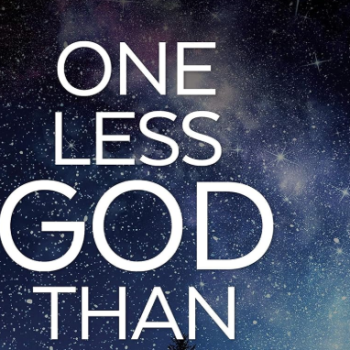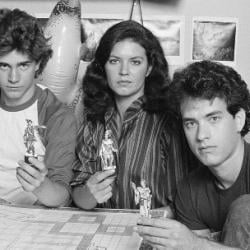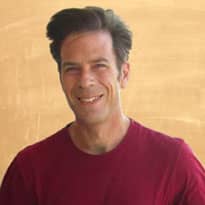Those first impressions dissolved in the frenzy that attended dinner preparations. Since the food was Italian, we had decided to improvise a trattoria in the courtyard, with checked tablecloths, candles, and origamically-folded cloth napkins. I remembered that Olmsted had served in the Vatican Secretariat of State. Surely those years had refined his palate. At best, he'd receive our lasagna with the same strained, official graciousness Pope Benedict showed when Kelly Clarkson serenaded him with "Ave Maria." It's the ancient paradox: I may disapprove of persnickety people, but I demand, without pity or humor, that they approve of me.
As I was setting the table, praying the rust stains on the knives and forks would disappear in the gloaming, Olmsted emerged from the chapel with some of the retreat's coordinators. I took the opportunity to study him, and found to my chagrin that he is a very amiable-looking man. Bluntly, his face is touchingly mismade; with his jug ears and spreading mouth, he reminded me of an ascetic Yogi Berra. Yet in his lankiness, in a certain artlessness, and in the fact that he'd gone completely bald beneath his zucchetto, he also bore a resemblance to Ron Howard.
I saw my Sardinian friend Enzo spring forward, take the bishop's hand, and kiss his ring. Olmsted's face assumed the delighted look of a man whose birthday has been unexpectedly remembered. "You have to be European to kiss a ring properly," Enzo later explained. "Americans either forget, or else they slobber."
I ate with my back to the bishop, so I can't say how he rated our food. If he didn't pronounce it "just like Cardinal Sodano used to make," he didn't send it back to the kitchen, either.
It was starting to dawn on me that Bishop Olmsted was not the cross between Pius X and Darth Vader that Nicholas Kristoff and I took him to be. He respected the workingman enough not to disturb him; he lacked vanity. He could be tickled by small gestures of obeisance and smile through a mediocre meal. But when I felt Enzo tugging me by the arm toward his table, I planted my feet and stood firm. I was simply not ready to meet the man. Perhaps I didn't quite trust myself not to scream, "Here's to Sister Margaret!" and toss a drink in the episcopal face. Or, just as likely, I still had more use for a bogeyman than a bishop.
I did, however, agree to attend the bishop's address, which was to take the form of a Q & A session. Enzo and I arrived to find the place packed with impressionable youngsters. Their sense of anticipation was palpable. Unlike us oldsters, jaded and suspicious, they clearly regarded him as a true spiritual father, and more, an ecclesiastical rock star.
Presently, Olmsted began speaking. I've forgotten most of what he said, but his delivery reminded me of oatmeal—wholesome and bland. It was the style favored by both George H.W. Bush and Michael Dukakis. It occurred to me that this dryness, which might pass for coldness, was nothing worse than the mark of a man who has invested nothing in being a character. After all my years in sales among charmers who'd pick a pocket, I found this rejection of charisma both exotic and oddly soothing.
"What did you want to be before you knew you were called to be a priest?" someone asked.
"A cowboy!" Olmsted answered, explaining how he'd grown up on a farm and ridden horseback to school every morning. Somehow the Bishop with No Name was not an image I could conjure with, but it was plain that in talking about himself, in playing to the galleries, he was stepping outside his comfort zone. Only a very cold customer could have failed to applaud the effort.
What made me follow the bishop out of the chapel, then, was a spirit of reciprocity, a sense of having been met halfway. Olmsted is a tall man and a swift walker, so I had to sprint a few steps in order to overtake him and offer him my hand. I did not kiss his ring, but I did use his title as a pronoun—"I hope Your Excellency enjoyed dinner." In moderation, clericalism can be great fun, in a Renne Faire kind of way.
I haven't seen Bishop Olmsted since. The parish shakeup turned out to be just as disappointing as I'd feared. But something about our meeting disinclines me to cast any blame on the man. Once I've looked into a person's eyes and shaken his hand, I only want to believe the best about him—maybe I'm a sucker that way. Or I could just be a name dropper at heart. Whenever someone speaks ill of the bishop, I find myself wanting to say, "What, you mean Tom? He's okay once you get to know him."





